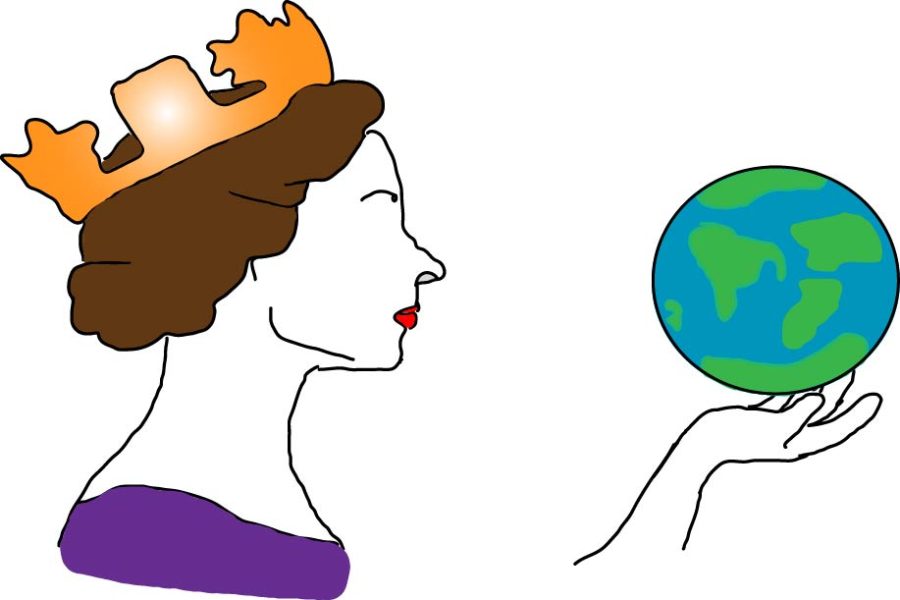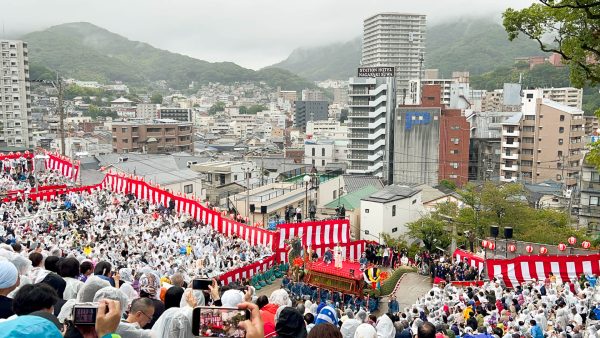OPINION: Recent passing of Queen Elizabeth II invites mixed feelings, reactions
Claire Lawrence / Hilltop Views
The death of Queen Elizabeth II shocked many across the globe, inviting different reactions from different nations.
With a long, 70-year reign, Queen Elizabeth ll made an impact not only in the United Kingdom but also across the globe. However, being royalty is not all glitz and glamor. At its height, the British Empire comprised 57 colonies, dominions, territories or protectorates: from Australia to India and the Western Samoa. Today, the empire has been reduced to 14 scattered islands, as many colonies sought independence from British rule. Most, if not all, of the colonies were exploited for their resources and suffered abuses under English Imperial rule. The lingering monarchy in England serves as a painful reminder to those freed from English rule of the brutality and oppression they suffered.
I expected a mixed response to the queen’s death because, for the British, she was England’s icon and her palace remains a major tourist attraction. What surprised me was the amount of people who emerged celebrating her death on social media and protesting the new reign of King Charles III, with the hashtag #NotMyKing trending on Twitter. This situation is similar to the concept of separating the art from the artist: in this case, separating her cultural symbol as a monarch from her past political engagement. The queen was not simply a figurehead for entertainment; she also engaged herself politically.
Many people assume the queen had no real political impact and just served as a celebrity symbol. That is not true. The monarchy can influence the lawmaking process under a unique set of rules known as the Queen’s Consent. The monarch lobbied ministers using this arcane parliamentary procedure to secretly influence the formation of British laws, according to an investigation by The Guardian. She used “Queen’s Consent” to exempt herself from the transparency law, which would hide her wealth from the public in a “secrecy clause” placed in the bill. This would grant the “government the power to exempt certain companies from the requirement to declare the identities of their shareholders.”
It is perfectly fine to celebrate her death, considering she represented a lingering relic of imperialism and involved herself in “shady” activities that the royal family takes part in. For example, how they only stripped Prince Andrew of his titles to save their own reputation when his ties with Jeffrey Epstein were questioned in the media. Not to mention the other abuses and scandals they worked hard to keep from the public eye. It’s a game of public relations and reputation. You can’t be a beloved ruler for 70 years without getting your hands dirty to maintain that image.
It also seems that people forget she ruled during the time of British imperialism, which is steeped in racism and exploitation. It’s easy to see why there’s a mixed bag of responses to the late queen’s death. I understand the concern of disrespecting the dead, especially a cultural icon: It’s a tricky situation. How soon is too soon to joke about death? Is it right to rejoice in someone’s death? However, I don’t think it’s disrespecting the dead, and countries that experienced the brutality of colonialism and other abuses under English rule don’t owe her respect. I think the celebration is justified as it serves as a morbid coping strategy on one end and holding a relic of colonialism accountable on the other end.
There are good things she has done during her rule, but just like any problematic artist, we have to acknowledge the bad things too. Everyone is entitled to their opinions on matters like this, but it’s important to realize some people are genuinely mourning her. There’s no way to police the internet, but people weren’t confident criticizing her while she was alive because of the power she held. It’s about holding her legacy accountable. You have to look at the whole picture rather than the appealing image the monarchy has crafted for itself. A lot of things happen behind closed doors, you just have to peek through the veil to see it.











